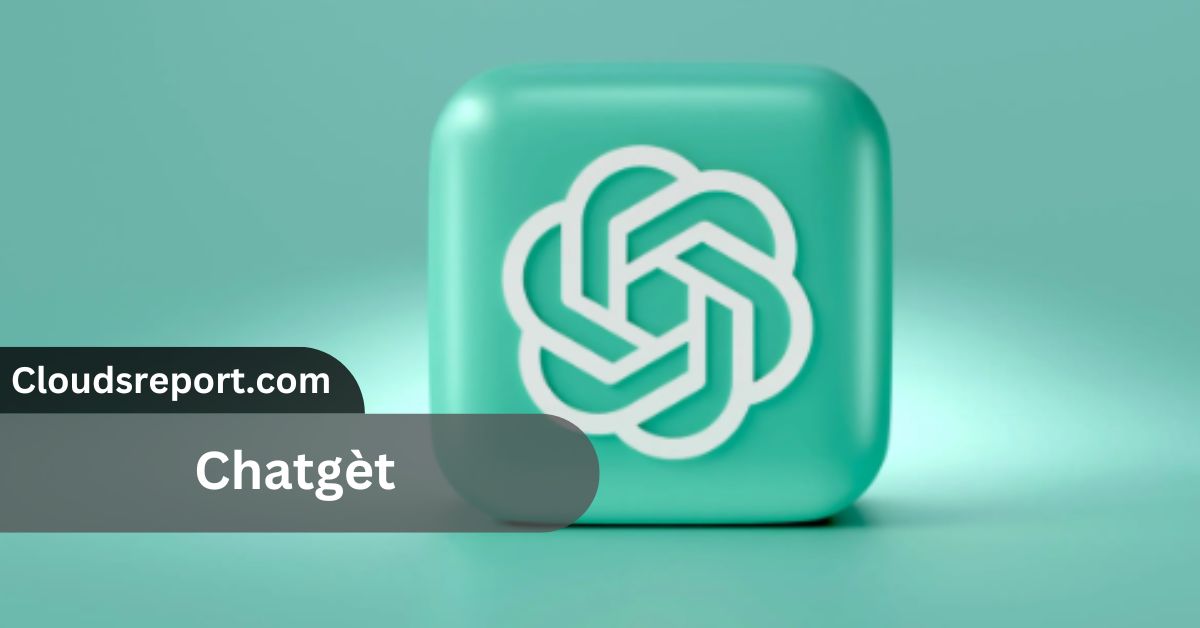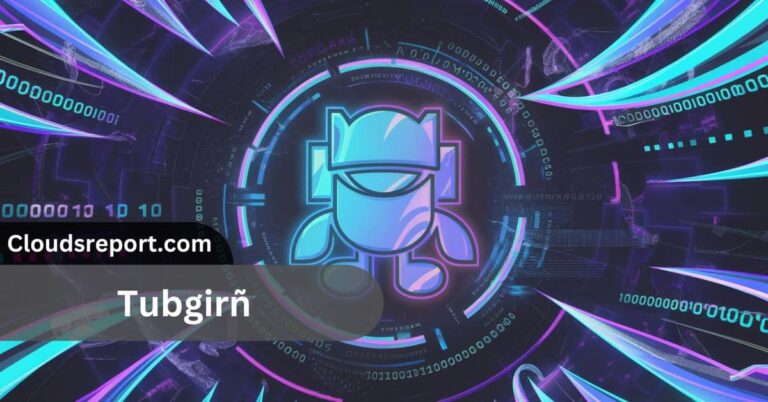Chatgèt – The New AI Tool You Need to Know!
Using Chatgèt made my work easier by giving quick, natural responses to customer questions. It helped me save time and handle tasks more smoothly.
Chatgèt is a smart AI tool that helps make conversations with technology feel more natural and human-like. It can be used for customer support, writing content, and teaching, making it useful for many different jobs.
This comprehensive guide explores what Chatgèt is, its applications, benefits, and the future it promises.
What Is Chatgèt?
Chatgèt is not merely a combination of characters but a sophisticated AI model designed to emulate human-like conversation. It builds on the foundation of ChatGPT, an AI language model developed by OpenAI. Chatgèt’s core function is to understand and generate human-like text, making interactions with technology more intuitive and natural.
The Evolution Of AI Communication – From Basic AI to Advanced Models!
- Early AI Models: Initially, AI models were limited to simple task automation and data processing. Their conversational abilities were rudimentary, often resulting in unnatural and mechanical interactions.
- Advancements in Language Models: With the introduction of models like GPT-2 and GPT-3, the complexity and sophistication of AI communication improved significantly. These models could generate coherent and contextually relevant text, making conversations more engaging and human-like.
- The Role of Chatgèt: Building on this progress, Chatgèt represents the next leap forward. It integrates advanced algorithms and extensive training data to offer even more refined conversational capabilities.
What Makes Chatgèt Great – Key Features Explained!
Human-Like Interaction:
- Contextual Understanding: Chatgèt excels at understanding context, which allows it to provide responses that are relevant and coherent. This ability is crucial for maintaining meaningful conversations in various applications.
- Natural Language Generation: By leveraging state-of-the-art language generation techniques, Chatgèt can produce text that closely resembles human writing. This feature is essential for applications requiring a natural and engaging user experience.
Versatility Across Industries:
- Customer Service: Chatgèt can handle customer inquiries with ease, offering accurate responses and improving customer satisfaction.
- Content Creation: From drafting articles to generating creative content, Chatgèt aids in producing high-quality text efficiently.
- Educational Tools: In educational settings, Chatgèt can provide personalized tutoring and support, adapting to individual learning needs.
What Are Some Practical Examples Of Chatgèt In Action?
Chatgèt is useful in many everyday situations. For instance, it can help businesses by answering customer questions and solving problems anytime, making customer support easier. It can also write articles, social media posts, and ads, saving time for content creators.
In personal use, Chatgèt can act as a virtual assistant, helping with reminders and schedules. For students, it can offer help with homework and learning. In online shopping, it can recommend products and help with orders. Overall, Chatgèt makes various tasks simpler and more efficient.
How Chatgèt Can Make Your Life Easier – Key Benefits!
Enhanced Communication:
Chatgèt’s ability to generate human-like text improves communication between users and technology. This enhancement is particularly valuable in applications where clear and engaging interaction is essential.
Increased Efficiency:
By automating routine tasks and interactions, Chatgèt boosts efficiency in various sectors. It reduces the need for human intervention in repetitive tasks, allowing human resources to focus on more complex activities.
Personalization:
Chatgèt can be tailored to meet specific needs and preferences. This personalization makes it a versatile tool for different applications, from personalized learning experiences to customized customer service interactions.
Can Chatgèt Integrate With Other Software And Platforms?
Yes, Chatgèt can be integrated with a variety of software and platforms through APIs and plugins. This flexibility allows it to work seamlessly with customer relationship management (CRM) systems, content management systems (CMS), and other enterprise tools, enhancing its utility across different business environments.
Can Chatgèt Be Customized For Specific Business Needs?
Yes, Chatgèt can be customized to fit the specific needs of different businesses. This means that businesses can adjust how Chatgèt works to better serve their own customers. For example, a store might train Chatgèt to answer questions about their products or help with order issues.
By doing this, Chatgèt becomes more useful for each business, providing answers and support that match what their customers are looking for. This customization helps businesses offer a more personalized experience to their users.
What Is The Cost Of Using Chatgèt?
The cost of using Chatgèt can vary based on several factors. Here’s a general breakdown of pricing considerations:
- Basic Plan: Typically includes essential features for small-scale use, such as basic language processing and limited integration options. Costs might start at around $50 to $100 per month.
- Standard Plan: Offers additional features like advanced analytics, higher usage limits, and more customization options. This plan usually ranges from $200 to $500 per month.
- Premium Plan: Designed for large enterprises with extensive needs, including advanced integrations, priority support, and higher usage capacities. Prices for this plan can exceed $1,000 per month, depending on specific requirements.
- Custom Solutions: For businesses with unique needs or requiring large-scale deployment, custom pricing is available. This usually involves a tailored quote based on the specific features and volume of use.
For the most accurate and up-to-date pricing, contacting the service provider directly or reviewing their official pricing documentation is recommended.
How Does Chatgèt Handle User Data And Privacy?
Chatgèt takes user privacy seriously by following strict guidelines to protect data. It typically anonymizes user interactions, which means personal details are not linked to specific individuals. Data is stored securely to prevent unauthorized access.
However, businesses using Chatgèt should also have their own privacy policies in place to ensure that user information is handled properly. Overall, Chatgèt aims to keep user data safe while still providing helpful and accurate responses.
How Does Chatgèt Handle Languages Other Than English?
Chatgèt is designed to support multiple languages through advanced translation and language processing capabilities. While its primary language might be English, it can be adapted to understand and generate text in various languages, making it useful for global applications and multicultural interactions.
Challenges And Considerations With Chatgèt – Must Know!
Ethical Concerns:
As with any advanced AI, Chatgèt raises ethical questions regarding its use and impact. Ensuring that the technology is used responsibly and that user data is protected are key considerations.
Accuracy and Bias:
Despite its advanced capabilities, Chatgèt is not infallible. There is always a risk of inaccuracies or biases in the responses generated by AI models. Ongoing efforts to refine and improve these models are crucial for minimizing such issues.
The Future of Chatgèt:
The future of Chatgèt is promising, with ongoing developments aimed at enhancing its capabilities. As AI technology continues to evolve, we can expect even more sophisticated and human-like interactions, further integrating Chatgèt into various aspects of daily life and work.
Frequently Asked Questions (FAQs):
1. How does Chatgèt differ from other AI models?
Chatgèt builds on the foundation of models like ChatGPT, offering enhanced contextual understanding and more natural language generation, making interactions more engaging and coherent.
2. What industries can benefit from Chatgèt?
Chatgèt can be applied in various industries, including customer service, content creation, education, and more, by improving efficiency and providing personalized interactions.
3. Are there any ethical concerns with Chatgèt?
Yes, ethical concerns include the responsible use of technology, data privacy, and potential biases in AI-generated responses. Ensuring responsible deployment and continuous improvement is essential.
4. How can Chatgèt improve customer service?
Chatgèt can handle customer inquiries efficiently, providing accurate and timely responses, which enhances customer satisfaction and reduces the need for human intervention in routine tasks.
Conclusion:
Chatgèt represents a significant advancement in AI communication, building on the success of models like ChatGPT. Its ability to generate human-like text and its versatility across different applications make it a valuable tool in various industries.
While challenges and ethical considerations remain, the future of Chatgèt promises continued growth and integration into everyday life, enhancing how we interact with technology. By focusing on both its current capabilities and future potential, Chatgèt is poised to make a lasting impact on digital communication and beyond.






